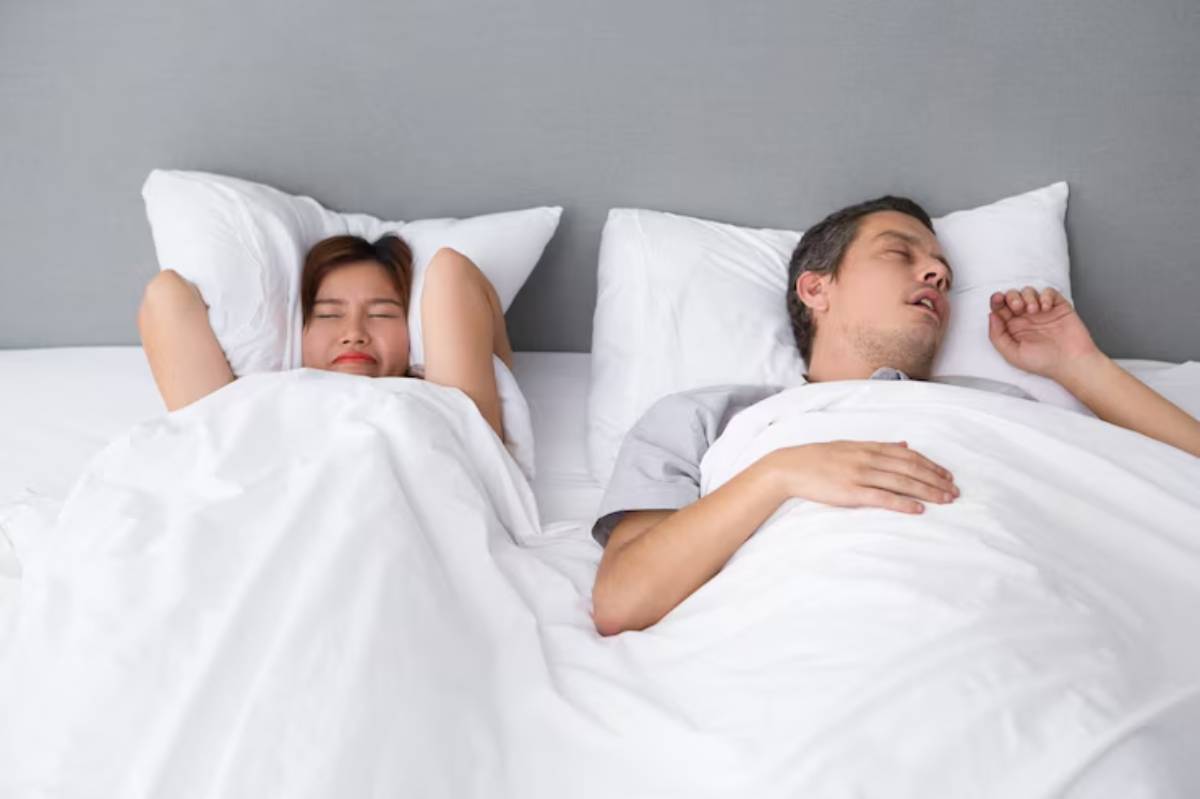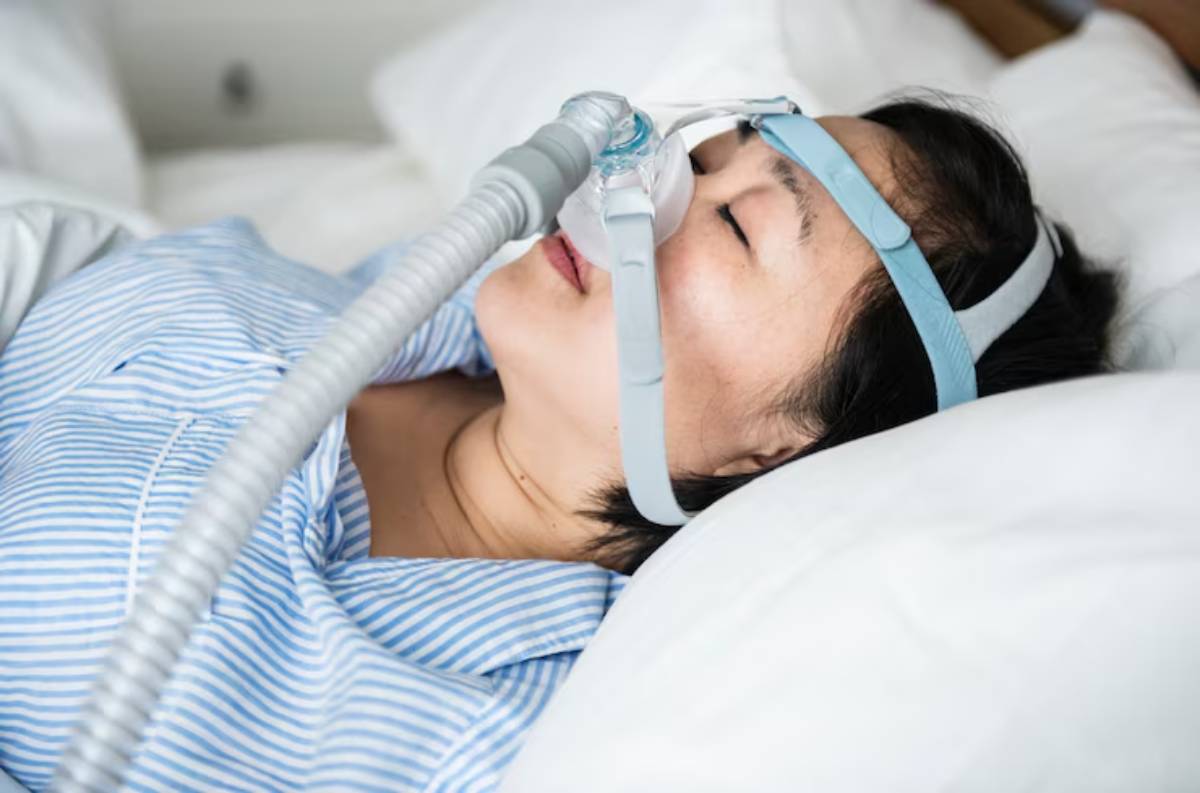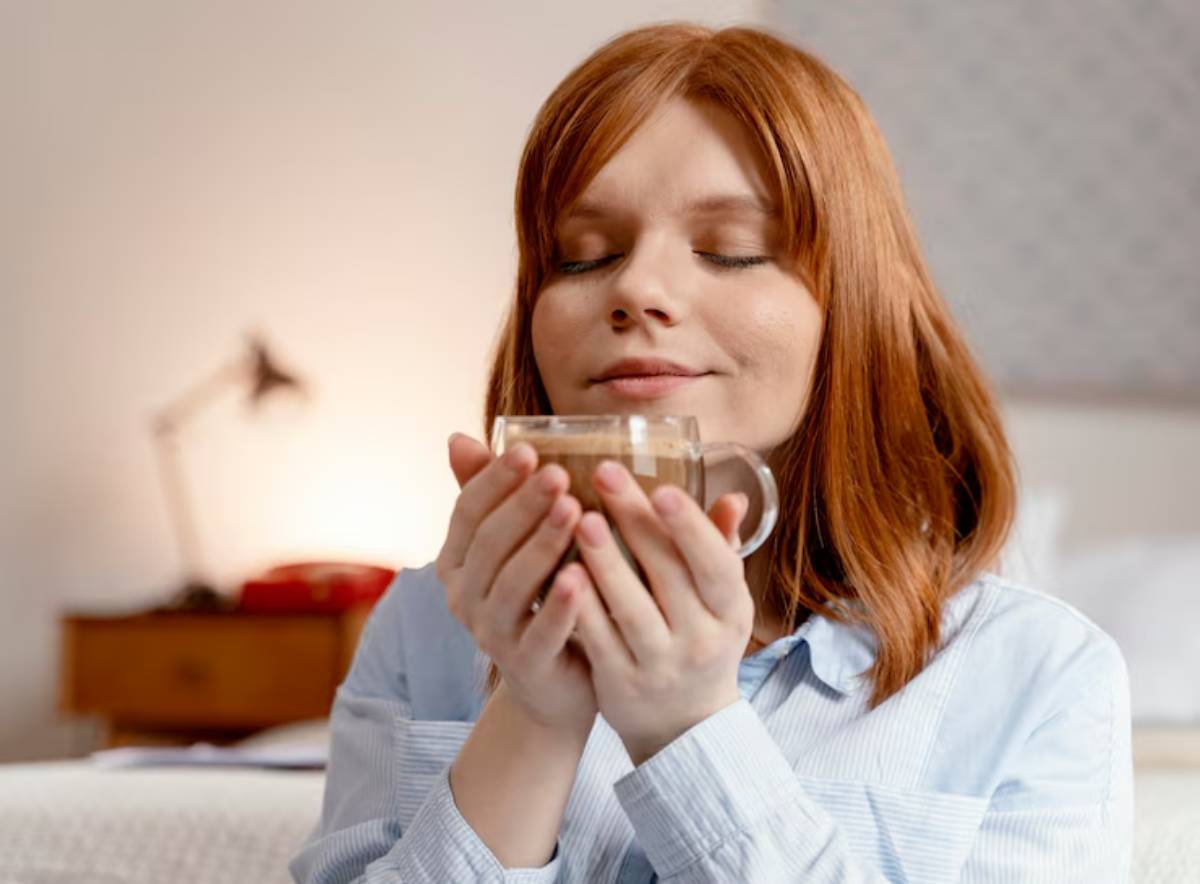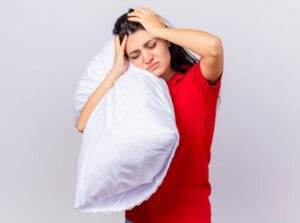The Health Blog

Natural Approaches to Managing Sleep Apnea
For many, sleep is when the body resets and restores. But for those with sleep apnea, rest can turn into a struggle.
Breathing becomes shallow or stops completely for short periods. The brain jolts awake — again and again — just to get air. Even if the person doesn’t remember waking up, the body feels it. The result? Exhaustion, headaches, foggy mornings, and increased health risks over time.
Many people use medical devices like CPAP machines for treatment. However, not everyone is comfortable with them. That’s why more people are interested in natural remedies for sleep apnea. These tools are non-invasive and help improve breathing. They also support better rest in a gentle way.
What Is Sleep Apnea, Exactly?

Sleep apnea is a sleep disorder. It causes breathing to stop and start many times during the night. Obstructive sleep apnea (OSA) is the most common form. In OSA, the throat muscles relax too much and block the airway.
Common signs include:
- Loud snoring
- Gasping or choking sounds during sleep
- Morning headaches
- Dry mouth upon waking
- Difficulty staying asleep
- Daytime fatigue or irritability
Untreated sleep apnea can cause serious health problems. This includes high blood pressure, heart issues, and a higher risk of stroke. That’s why managing sleep apnea is important, whether with medical or holistic treatments.
Why Consider Natural and Holistic Approaches?

While devices like CPAP machines can be effective, they’re not always the right fit for everyone. Some find them uncomfortable. Others struggle with the noise or simply prefer less invasive support.
Natural strategies aim to tackle the root causes. These include airway obstruction, weight, inflammation, and sleep posture. This approach goes beyond just managing symptoms.
When used regularly, these sleep disorder solutions can improve breathing, promote better sleep, and enhance medical treatment plans.
1. Weight Management Through Nutrition and Movement
Excess weight — especially around the neck and abdomen — increases the risk of sleep apnea. Fat deposits can put pressure on the airway, making it more likely to collapse during sleep.
Making gradual, healthy changes to diet and physical activity can relieve some of that pressure.
Natural tips to support weight loss gently:
- Focus on whole foods like vegetables, fruits, lean protein, and whole grains
- Limit processed sugar and refined carbs, especially before bed
- Stay active with walking, swimming, or light strength training
- Avoid large, heavy meals in the evening
Even small weight loss can greatly help sleep apnea symptoms. Sometimes, it can reduce symptoms enough to skip further treatment.
2. Change Sleep Position
How a person sleeps can affect how easily they breathe.
Sleeping on your back can cause the tongue and soft tissues to fall into the throat. This increases the risk of airway blockage. Side sleeping, on the other hand, helps keep the airway more open.
Simple adjustments that may help:
- Use a body pillow to stay on the side
- Try sewing a tennis ball into the back of pyjamas to discourage back sleeping
- Choose a firmer pillow to support proper neck alignment
For many, this one shift in sleep position becomes a surprisingly effective sleep apnea natural remedy.
3. Practice Throat and Tongue Exercises
The muscles in the throat, tongue, and mouth play a big role in keeping the airway open. If they’re weak, they collapse more easily during sleep.
Mouth and throat exercises, known as oropharyngeal exercises, help strengthen these muscles. They can also reduce sleep apnea severity.
Try these daily:
- Stick out the tongue and move it side to side
- Press the tongue to the roof of the mouth and hold
- Say vowel sounds like “A-E-I-O-U” in a slow, exaggerated way
- Practice gentle humming or singing exercises
These simple movements, done for only 10 to 15 minutes daily, may help improve airway control over time.
4. Use Herbal Remedies to Reduce Inflammation

Some natural herbs and anti-inflammatory ingredients may support better breathing at night.
Examples include:
- Turmeric – known for reducing swelling and inflammation
- Ginger – supports clear airways and overall respiratory health
- Peppermint – can help ease nasal congestion and throat tightness
- Chamomile – calms the nervous system and promotes relaxation
Herbs can be taken as teas, capsules, or in warm, soothing drinks before bed. While not a standalone cure, they fit well into a holistic sleep apnea treatment plan.
5. Reduce Nasal Congestion Naturally
If it’s hard to breathe through the nose, the body switches to mouth breathing. This change raises the risk of airway collapse. Keeping the nose clear makes breathing smoother and more natural.
Simple ways to ease nasal congestion:
- Rinse with a saline spray or use a neti pot before bed
- Use a humidifier to keep airways moist
- Try essential oils like eucalyptus or lavender in a diffuser
- Sleep with the head slightly elevated using an extra pillow
A clear nose can make a big difference — especially for those with mild or moderate sleep apnea.
6. Limit Alcohol and Sedatives Before Bed
Alcohol relaxes the throat muscles — which may worsen sleep apnea symptoms. Sedative medications can have a similar effect.
To support better breathing:
- Avoid alcohol at least 3–4 hours before bedtime
- Review medications with a doctor to check for sedative effects
- Choose calming, natural routines (like herbal tea or meditation) instead
Making this adjustment can help the airway stay more stable throughout the night.
7. Support Sleep Hygiene and Consistent Routines
Poor sleep habits can make sleep apnea worse. An irregular sleep schedule confuses the body’s clock. This makes it hard to get deep, restful sleep.
Helpful habits include:
- Going to bed and waking up at the same time each day
- Keeping the bedroom cool, dark, and quiet
- Avoiding screens for at least 30 minutes before bed
- Creating a relaxing wind-down ritual (reading, stretching, soft music)
These habits won’t cure sleep apnea. They can boost sleep quality, reduce stress, and help with other sleep disorder treatments.
8. Consider Alternative Therapies
In some cases, additional natural methods may offer supportive benefits:
- Acupuncture: Believed to stimulate airflow and reduce inflammation
- Chiropractic care: May improve neck alignment and breathing posture
- Myofunctional therapy: Focuses on retraining the tongue and facial muscles for better airway control
These therapies work best with other lifestyle changes. They should not replace medical care. However, many people find them helpful in a complete sleep apnea treatment plan.
When to See a Professional
Natural approaches can be powerful. But it’s important to recognise when professional help is needed.
Signs that it’s time to consult a doctor or sleep specialist:
- Loud, frequent snoring
- Gasping or choking in the night
- Feeling extremely tired during the day
- High blood pressure or frequent headaches
- Mood changes or memory issues
A sleep study can confirm a diagnosis and help guide the right course of action. Sometimes, natural methods are better as support tools than full solutions. This is especially true for moderate to severe sleep apnea.
Gentle Steps Toward Better Breathing
Managing sleep apnea doesn’t always mean relying only on machines or medications. For many, small, consistent changes make a real difference. Small changes in posture, diet, breathing, or daily routines can help reduce symptoms. They can also promote deeper and more peaceful sleep.
These sleep apnea natural remedies can’t fully replace medical care. They offer something important: a sense of control, better body awareness, and a way to enjoy restful nights that feel more natural.









